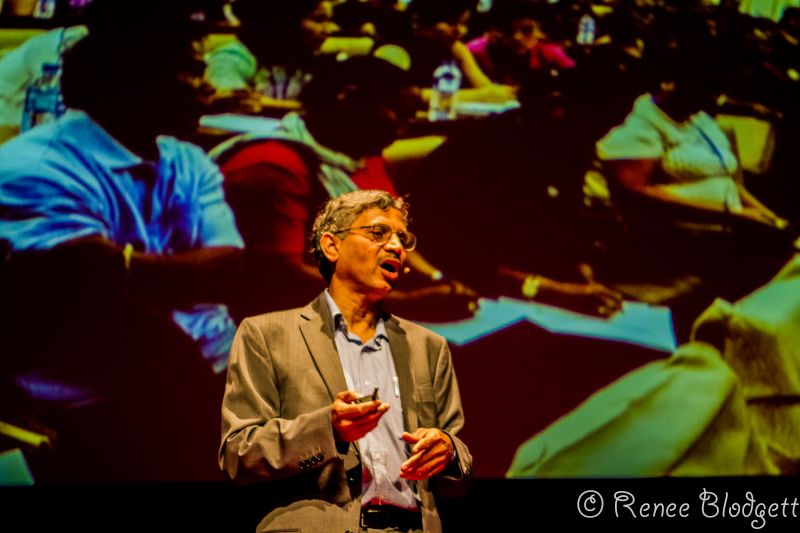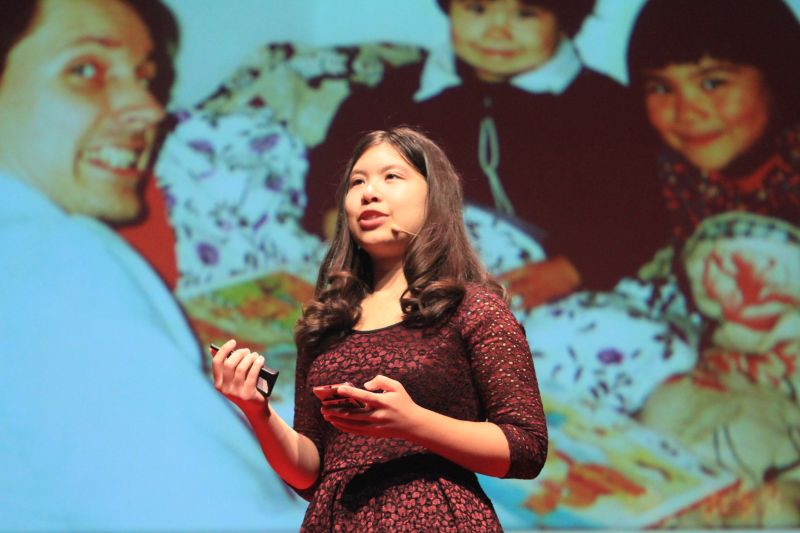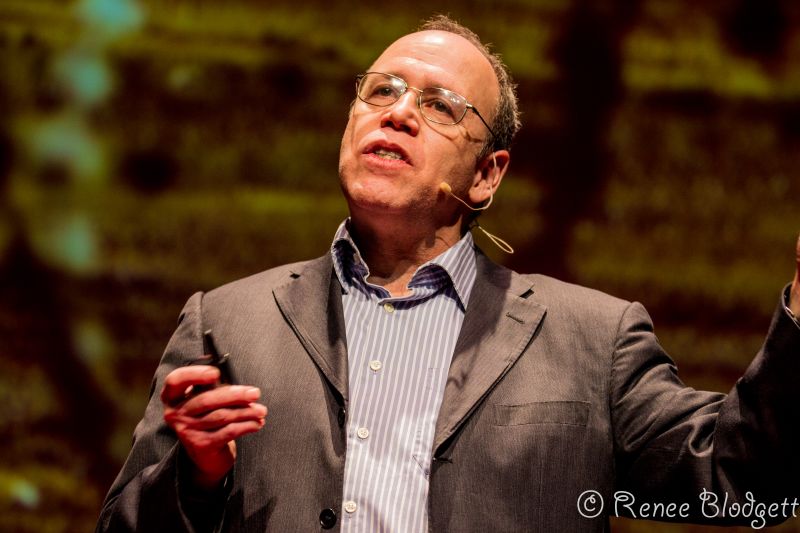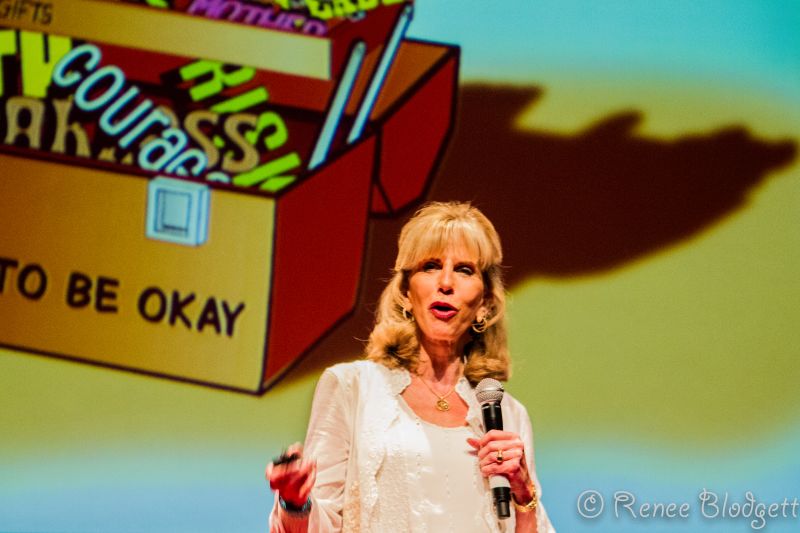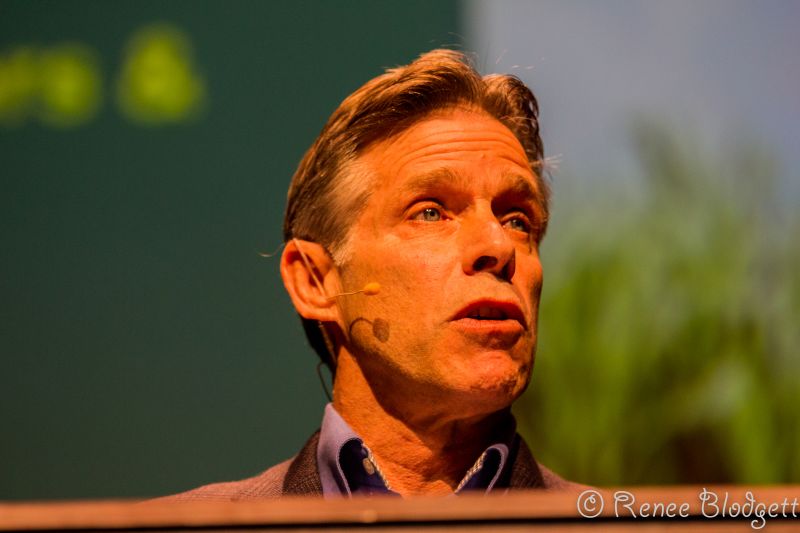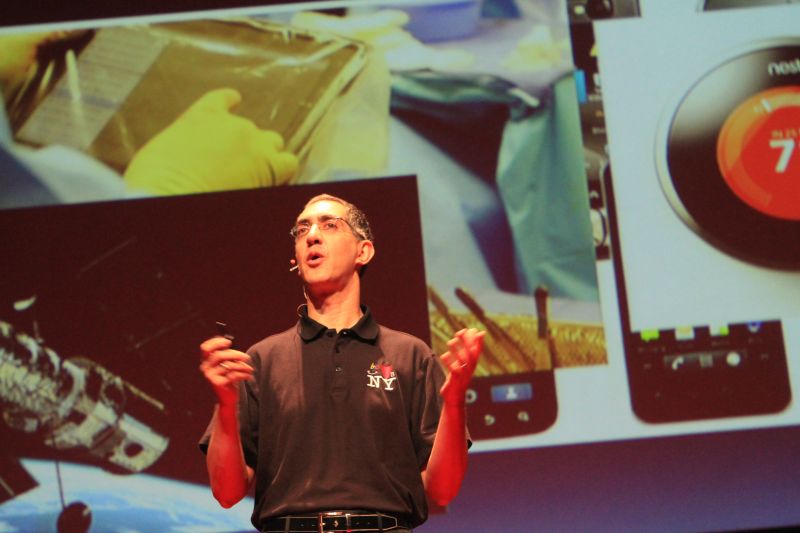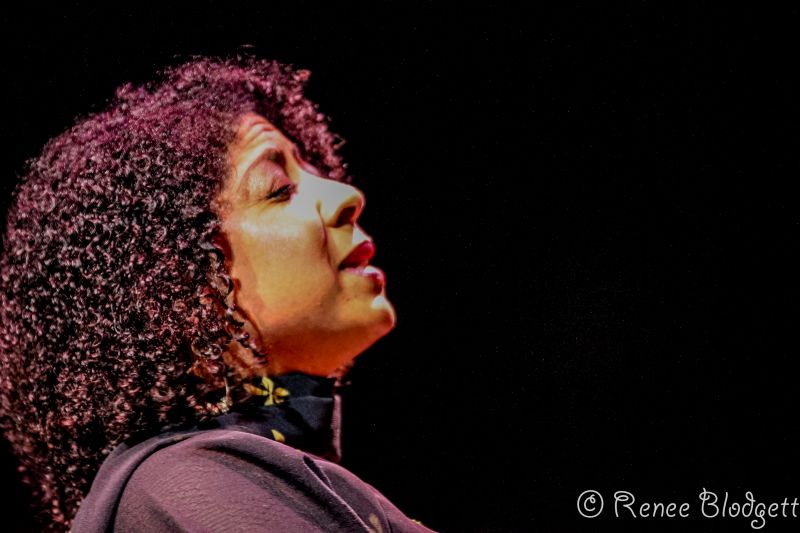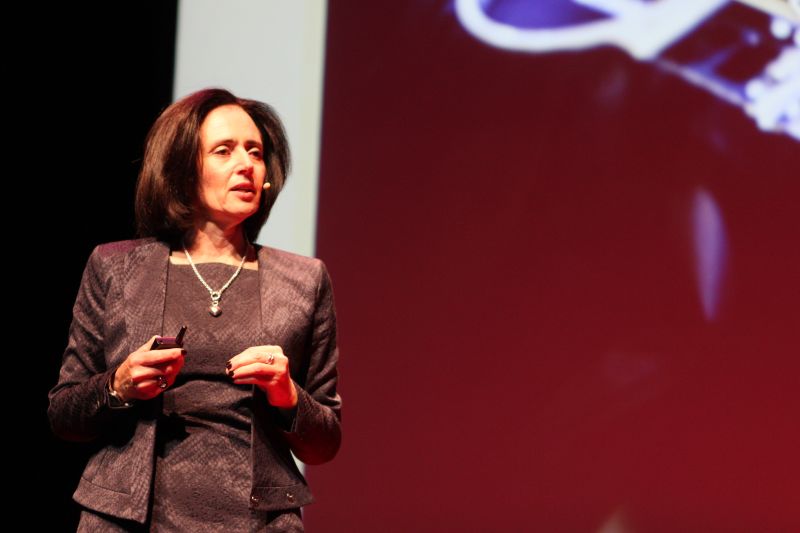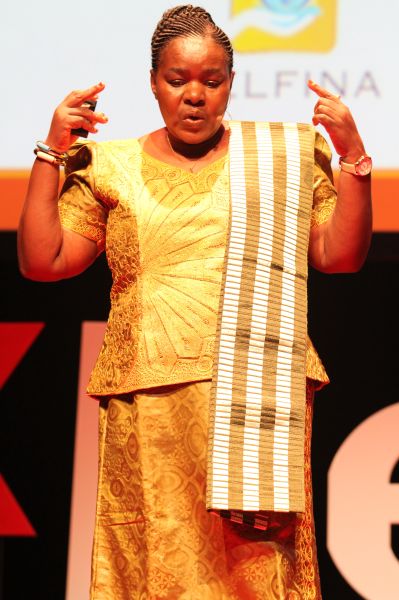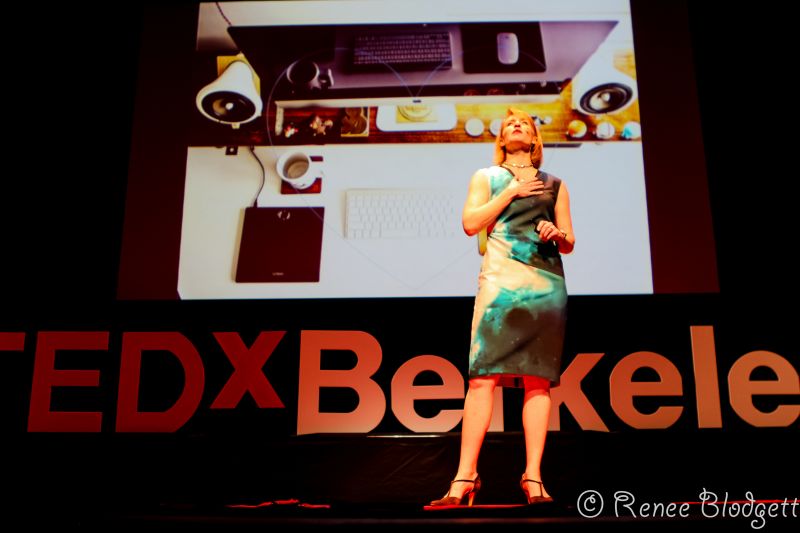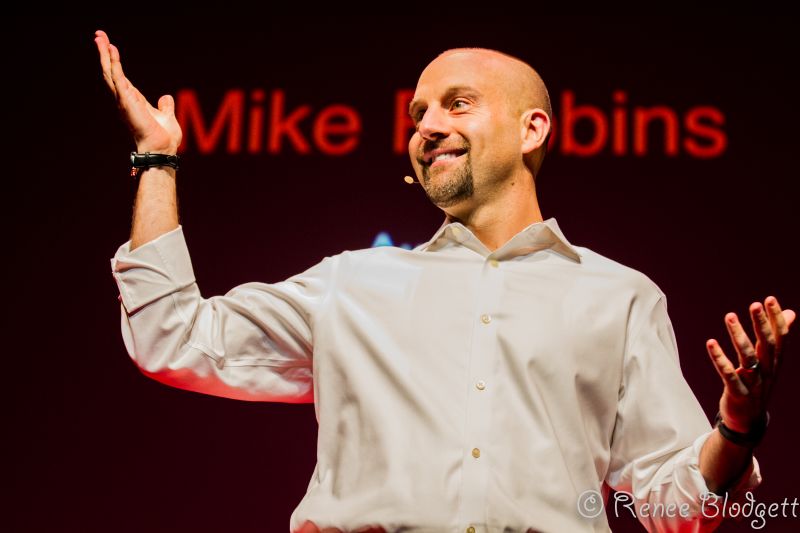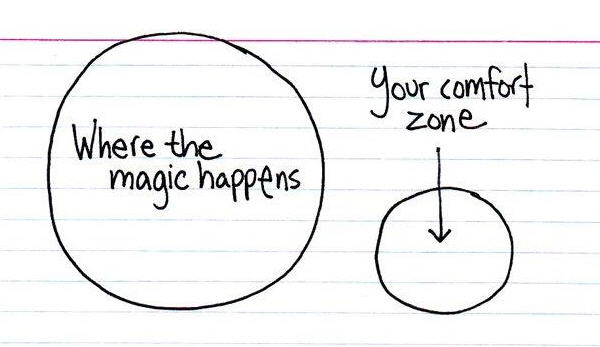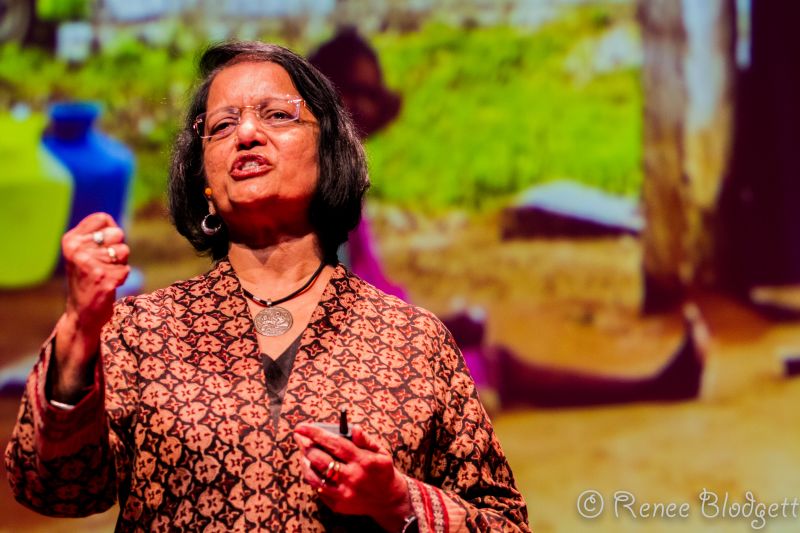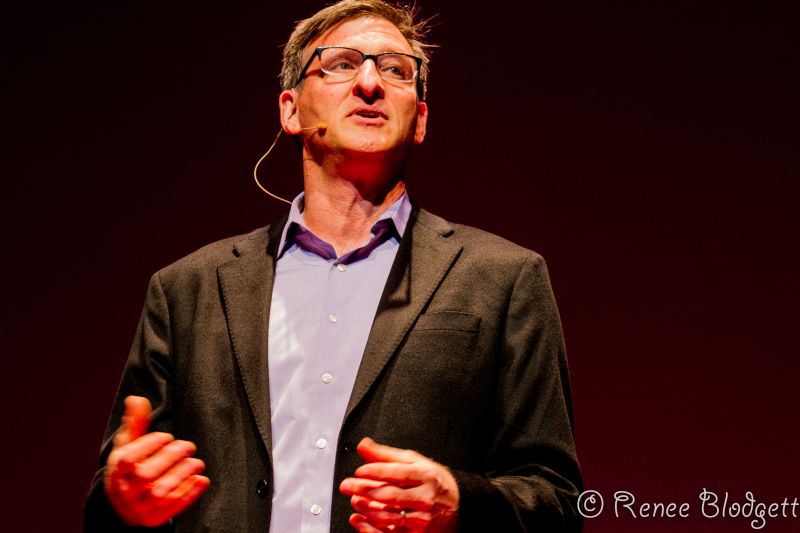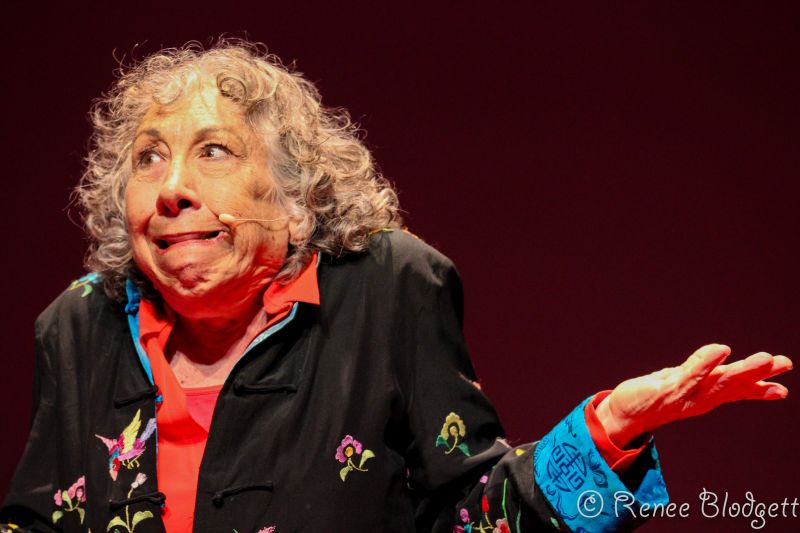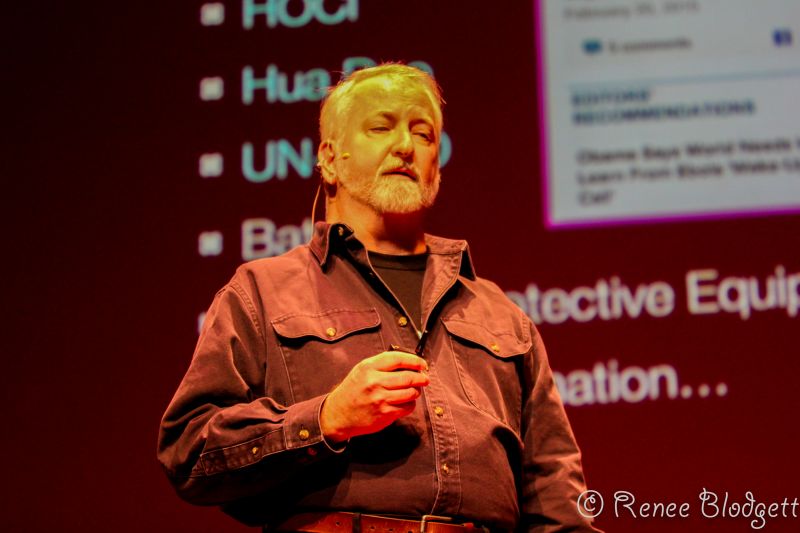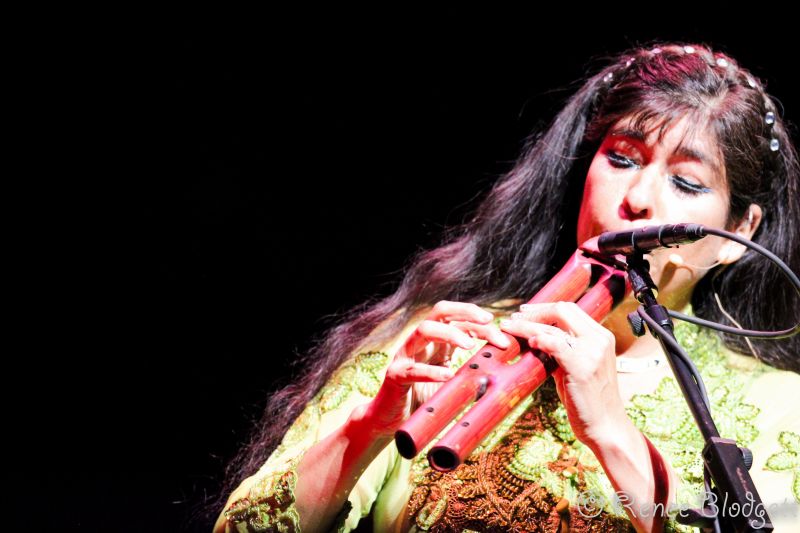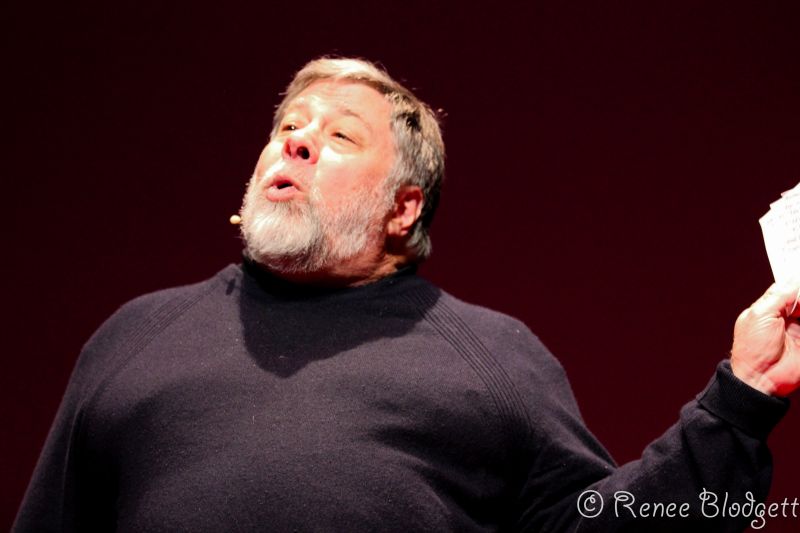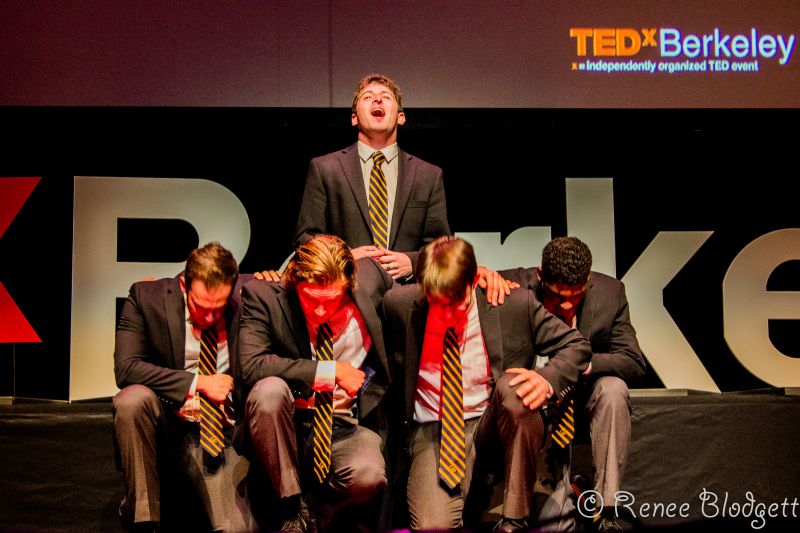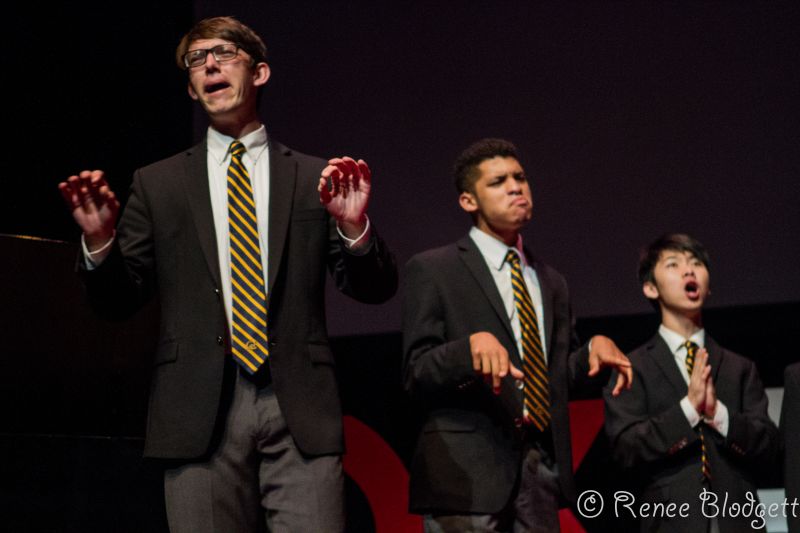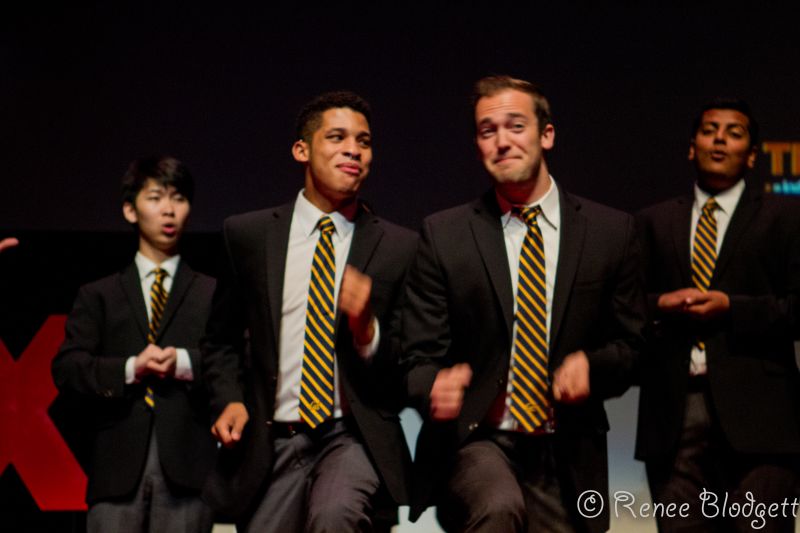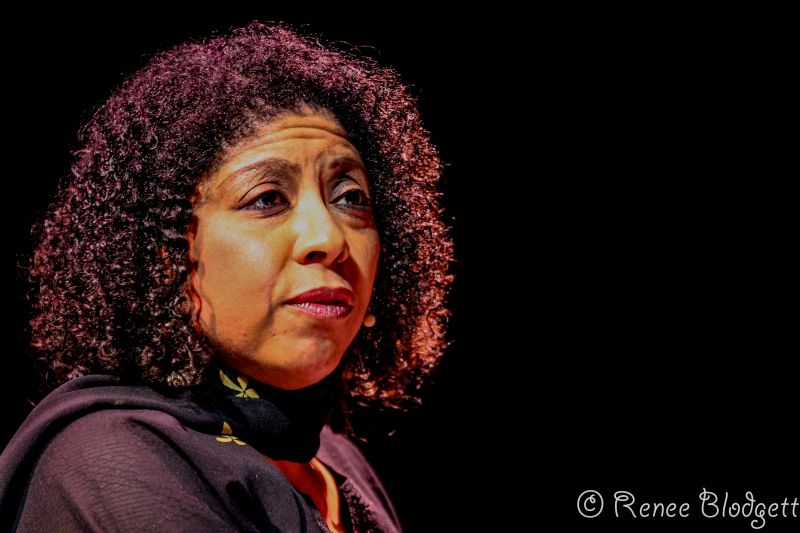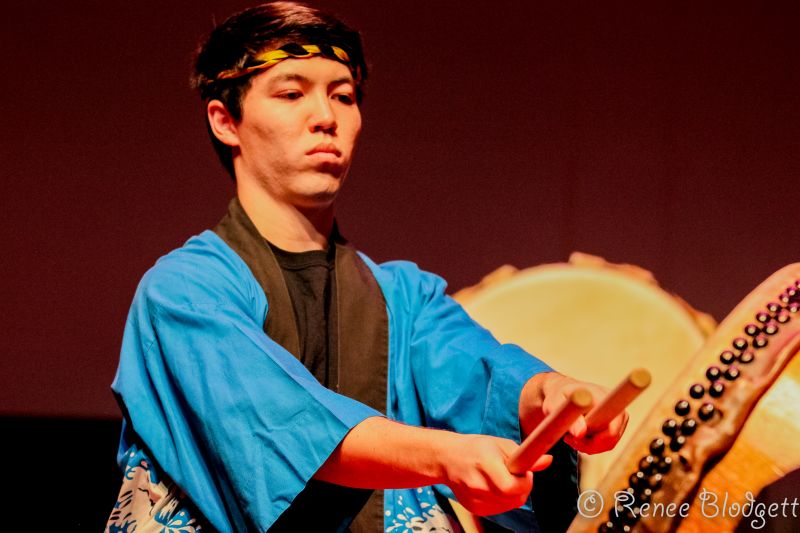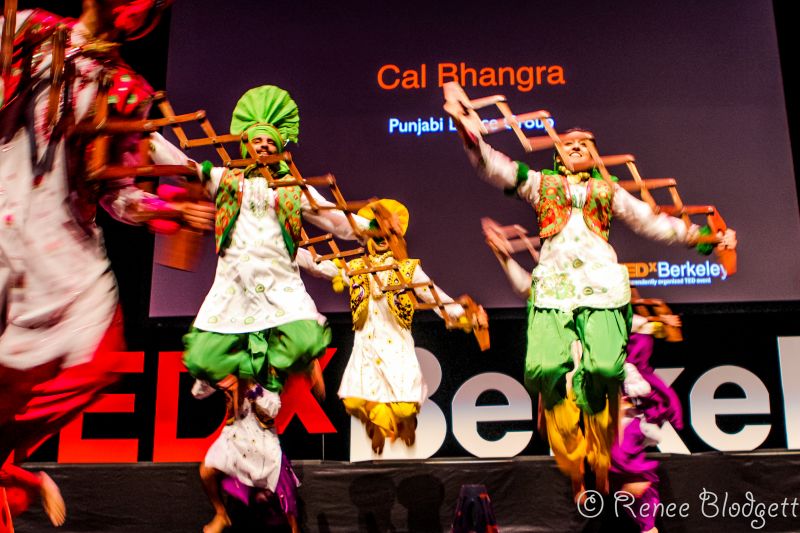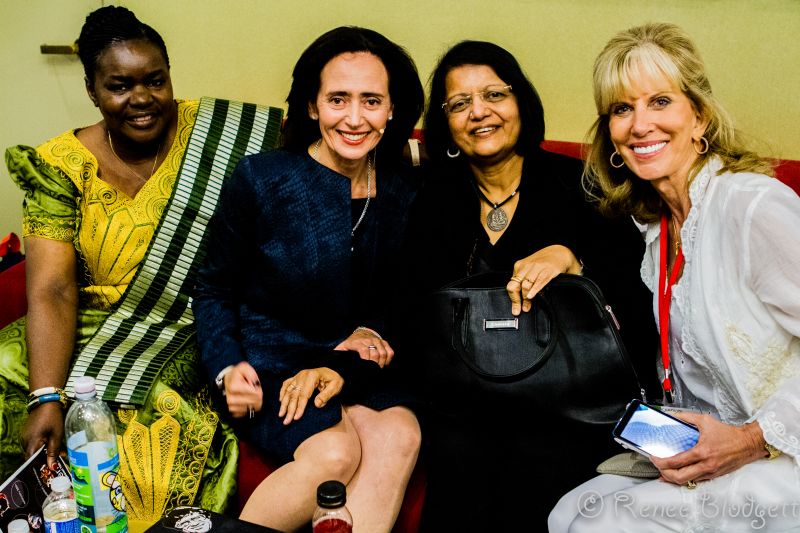For this year’s TEDxBerkeley‘s event whose theme was Compassion, Connection and Wisdom, over 2,000 attendees showed up to hear 57 speakers and performers at the University of Berkeley’s Zellerbach Hall on February 28. Below are highlights from some of our thought provoking speakers, several of whom flew over from Africa to join us thanks to this year’s Diamond Partner Fetzer Institute.
Performers nailed it out of the park, which included the upbeat Japanese drum performance by Cal Raijin Taiko, the energetic Cal Bhangra dancers whose goal is to keep Punjabi dance alive (below), and the UC Berkeley Men’s Octet who added humor to their doo-wop, barbershop and pop songs, acapela style of course.
Dr. Prasad Kaipa, who kicked off the first session on Wisdom, has committed his life to driving innovation and leadership. The bulk of Prasad’s work has revolved around getting people to realize their full potential, most known for his work advising companies like Disney, Adobe, Apple, Boeing and others.
His talk began not with lessons learned in corporate America however, but with a single, startling fact: Malnourishment kills 1,500 children in India every day. He reminds us that malnourishment happens not because of lack of food, but also because of lack of awareness.
Awareness is not just key to solving the malnutrition problem but also in allowing all of us to realize our full potential. He asserts that we may have an idea of what it ‘can be’ but most of us don’t feel as we’ve reached it as demonstrated by the show of hands when he posed the question to a very academic and entrepreneurial audience. “Knowledge without discernment and emotion without reflection is not going to get you there,” he says.
Prasad suggests that we can only truly reach our full potential when we combine our talents and strengths — in other words, you cannot stop at just one strength even if it’s a key strength that has made you successful so far.
If you don’t have a strength to get you where you need to go next, he encourages people to find that strength outside of ourselves…in a family member, friend, colleague, mentor or others. The combination of strengths is what will ultimately help us thrive and go beyond where we’ve ever imagined.
Adora Svitak, who is only a freshman at UC Berkeley, blew the audience away by addressing sexuality with both candor and humor as a way to honestly and authentically address the shame and silence Americans attach to sex. Without honest conversations about sex, kids will find it out on their own, which doesn’t paint a realistic picture. From a student’s point-of-view, she addressed the repercussions of sex if you don’t have the facts early on — facts without shame that is.
It was refreshing to see her take on a controversial topic at a TEDx event. Having lived in multiple countries over the years, I was always astonished to return to a puritanical America to find the same views on sex that haven’t seemed to change much since the 1800’s. How we learn about sex and more importantly, the attitudes we have about sex, doesn’t just affect us, but all of our partners and people in our wake.
She suggests a much more open and freeing conversation so that rather than starting our life with fear around sex, we can begin to see it differently, a paradigm shift in today’s society. Without fear in the way, we can make up our own choices with healthy unbiased knowledge — again, without the shame — which can only lead to healthier sex early on.
Ideas include stop calling each other sluts and whores. We can promote open conversations and answer kid’s questions with honesty. The more private we make sex, the less we know about ourselves. We have all the answers, so why should we leave people fumbling in the dark. We leave people fumbling because it is where fear is and, says Adora, “those moments are our darkness. To speak of sex is to speak of life. There is beauty and encouragement to be found in the exploration of our vulnerability. Neither should be scary or stigmatized.” Hear hear Adora. You couldn’t have said it better – let’s stop giving power to the fear of sex.
Marc Gopin, who is the Director of the Center for World Religions, Diplomacy and Conflict Resolution (CRDC) talked about Seven Steps Towards Peace. Originally from the Ukraine and raised in a ghetto, Marc brought his own life experiences into his talk. Also a professor, he shared his own journey asserting that in order to make an impact, whether in our own professional life or for a bigger calling — to create peace in the world — all life journeys and outcomes ultimately begin with ourselves.
He asked, “how and when do human beings, who are capable of unspeakable violence, but also capable of the most tender love, move away from hate and violence and towards less violence and more empathy?” Weaving examples of the holocaust and other tragic political events since then, he reminds us how blind obedience can and has led to mass murder in pockets in the world.
He spends a lot of his time thinking about how people can change for the better. From philosophers and psychologists to academics and politicians, he feels that we can learn how to “become good.” He asks, “what is the capacity of the brain to focus on positivity? We are beings who slowly change for the better in numerous ways including empathy, reason and shared values, equal commerce between people and women empowerment, among others.”
Arising from his peace activism work, a company named Mejdi Tours was created to provide fair wages and equality for both Jews and Arabs. He grins as he says, “I like impossible places.”
He went on to say, “the stranger is the key to healing the planet. Approaching a stranger with empathy is the key to moving towards it globally. Emphasize the positive in all things. Have vision. Empower women everywhere. Embrace gentle commerce that is equal and has care, purpose, honor and respect. Above all, love a stranger when you cross the street, everywhere in the world. Find a stranger and love them and you will change the world globally. No dictator, no gang, no state, no war can steal the soul of that stranger you touch. Network is everything.”
Beautifully said. In other words, a journey with a stranger is what unlocks all of us and can heal the world!
During a chat with founder of Expect a Miracle! Carolyn Gable in the Green Room, I couldn’t help but marvel at her carefree way of approaching problems. Letting obstacles get to us is a sure way to bury ourselves, so it’s important to rise above them, even the smallest of glitches that get in our way. Carolyn’s approach is also brutally honest and raw in a very beautiful and authentic way, largely because of what it took to get to where she is today.
Everything she knows as a CEO, she learned as a waitress — Fear and Failure and beyond. I get it! As someone who also waited on tables around the world, I learned that the customer is always right (almost always) and how to juggle multiple things at all times, a valuable skill as a waitress….and most certainly a valuable asset as a CEO.
I resonated with her talk in a myriad of ways, much of it stemming from growing up in a working class world which is often focused on what you “can’t do” rather than what you can. Within this context, you have no choice but to block out the external noise and your primary conditioning in order to achieve your life’s goals and more importantly, dreams.
It’s what we do with failure and fear that makes the difference of what we accomplish in life. She says, “when we ‘fail up’ and ‘fear up,’ it’s when we learn life’s true lessons. Showing up is 98% of everything in life.” So true Carolyn, so true — it’s something I’ve told many an intern over the years – don’t worry about the how or the why or the what — just show up. Show up and be as present as you possibly can.
Says Carolyn, “we all come into this life with a unique toolbox. Scientists say 99.9% of our DNA is the same, only .1% separates us and she believes it’s what is in our toolbox that makes the difference. “We’re all given gifts in life and tools to help us out in our journey,” she added. “The tools are the same but the gifts are unique – it’s up to us to tap into those gifts and live them.” And, I’d add, not to take no for an answer.
Faith was the number one thing in Carolyn’s toolbox. She asserts that if you don’t have faith, if you don’t believe that there isn’t a bigger purpose for your life, chances are that you’re not happy or love what you do. When you “live” in your gifts, you begin to realize that everything you need in your life is already inside you and frankly, given to you the day you were born.
Another great skill to have — gift or not — is determination! (Yup, we’re back to not taking no for an answer). Overcoming fear is how you give back to life and she definitely has — her company Expect a Miracle! helps children with single parents shine.
Eric Holt-Gimenez, Ph.D. has dedicated his life to food insecurity. Through his company Food First, he’s helping the world address food insecurity through sustainable farming, a practice that if fully embraced, could change the world. As remarkable as it sounds, even the richest countries in the world still have food insecurity.
He drove a project where they compared 1,000 sustainable farms to 1,000 planted traditionally across 150 communities in Nicaragua and Central America. The results were astonishing but frankly not surprising. Sustainable farmers had less erosion and fewer crop losses than their neighbors. Based on this, their efforts were centered around an agriculture reconstruction plan — farmer-by-farmer — with a goal towards sustainable farming everywhere.
With such positive results, they expected a reconstruction plan to be implemented but sadly it never happened. Central American reconstruction failed miserably because they didn’t implement the research showing that sustainable farming was better.
A hard lesson learned, Eric reminds us that “it’s not enough to be right. This is especially true if you’re from an oppressed group of people who are often dismissed. You need to dismantle the social injustices holding them back. If we want to make food justice the norm, we need to make a food movement, led by those who are most negatively impacted by food and other injustices.”
He says, “we need to support the leadership who has the most at stake. We need a common vision of food justice. Ask yourselves: what would our food system look like if farm workers received fair conditions and wages, if women were recognized and valued for producing 70% of the world’s food, if black lives mattered?”
Dr. Dan Garcia, who zipped onto the TEDxBerkeley stage on a scooter, is redesigning and breaking down barriers surrounding computer science education. Originally from the Bronx, he wound up at UC Berkeley as a professor where is dedicating his life to the future of computing. While computing may in fact be a core literacy of the 21st century, it is still only available in 5% of schools in the United States.
You have a much higher chance of having football offered in a high school than computer science. “Without the high school piece, anything we do for middle school will be lost, and anything we do at the college level will be insufficient,” says sociologist Jan Cuny.
Dan is working on an organization that gets courses in high school through AP courses, a single source of national leverage. It is founded on 7 big ideas: creativity, abstraction, data and information, algorithms, programming, the Internet and global impact.
Based on those Big 7, teachers can build a syllabus around them. The project name is CS10K and its goal is to get engaging rigorous computing curricula into high schools around the country starting with New York City, which, with 70% kids of a different color, is the most diverse in the country. I love the effort, which with Dan behind it, has a high chance of succeeding – his passion, wit, humor, commitment and drive is intoxicating on and off stage.
Music minister Valerie Joi moved me with her song on forgiveness she sang at the Steinway grand piano on the Zellerbach stage. My only wish was to hear more of her.
Valerie’s “raison d’etre” in the world seems to be to spread the message of unconditional love through music. “Forgiveness,” she says, “is something we do everyday if we make a choice to.” In other words, forgiveness is something we can choose every day – it’s merely a choice. It doesn’t have to be hard, it can be joyful and it’s actually very freeing.” Her song echoed those words and more. Oh so lovely and oh so inspiring!
We jumped into compassion starting with South African entrepreneur Dr. Suzanne Ackerman-Berman who wears the hat of Transformational Director at Pick-n-Pay, the chain we shopped at regularly when I lived there in the eighties and again in the nineties. What’s driving Suzanne today is socially responsible capitalism and it is this calling she brings into her business every day.
Truth be told, many people leave countries where there is heartache and upset and many don’t return. “You can take the child out of the country but can you take the country out of the child,” she says, talking about her personal journey and how despite living in Europe for some time, she was called to return to South Africa during the country’s transformation.
At the end of the day, we are fulfilled when we make a difference in the world and as Marc Gopin so rightfully pointed out, it all begins with your own story. The essence of inequality is something Suzanne learned early on when her parents taught her that inequality anywhere effects quality everywhere. Despite political change, she saw that in a post Apartheid world, there was still a lot of diversity and that the country was still split by education, split by color and even moreso, split by privilege.
Says Suzanne, “we had communities whose only asset around them was their resources.” She realized that people around her had no role models or the only role models in their lives were domestic workers and didn’t know anything about health hygiene regulations. Her foundation is working to make changes here and create hope within communities.
She ended with a powerful Nelson Mendela quote, who was still in prison when I lived there. “Overcoming poverty is an act of justice – poverty is not natural, it is man made and can be eradicated by the actions of human beings.” So right, so true and so necessary for equality and positive change to happen in the world.
Tanzanian-born Dr. Victoria Kisyombe has dedicated her entire life to women empowerment. Having grown up in a farm with few resources and even less money and mentors to help her along the way, Victoria pioneered micro-leasing, starting with a single cow.
Micro-leasing in Africa has proven to not just empower women but allow them to become economically sufficient. Her life transformation started when she became widowed with three children and one cow named Sero. She learned that Sero wasn’t just a cow, but also a productive asset. Once she realized the value of her cow, compassion kicked in. She began to look around at other women who were trying to cope with even less than a single cow, which led to her passion and drive to start micro-leasing.
Through micro-leasing, she realized that women could jump start businesses right away. The lease asset would become a woman’s collateral, which was the main issue with Tanzanian banks — without collateral, it wasn’t possible to get financed.
This initiative has resulted in women growing their assets exponentially. Once women’s businesses are up and running, her company transfers the ownership over to the women. She shared several stories with us including a woman who started two businesses from one hairdryer and another who is now exporting her sunflower oil to Switzerland. Since roughly half of the communities don’t have power, they are powering women’s projects with solar energy. The results of her initiative has been profound: 25,000 women are now financed, more than 125,000 jobs have been created, and 200,000 jobs have been impacted.
What’s so great about her story, is that it all started from one cow. As the leasing increases, so do the profits. Recently, she brought the voice of grassroots women to the World Economic Forum. A remarkable woman with passion and a fabulous smile, we all left feeling empowered by her story. When someone tells you something isn’t possible, think back to what Victoria did with one cow, get re-grounded and try again. There’s always a way!!
Leadership coach Alison Meyer shared how to access more of our compassion in our daily lives. Rest assured, we all have wisdom we can tap into during our calmest of moments. The problem is that we rarely have calm moments and when calmness does arise from a storm, so few of us take the time to tap into our inner wisdom.
Everyone has thorny problems that crop up in our lives we can’t figure out a solution for — stepping back and giving ourselves a few calm moments allows us to look inward for the answers rather than going external for a “fix.”
She shared a touching story about the loss of her sister, who she felt hopeless to help when she was dying. Later on when she was losing her mother, she realized that life gives us a second chance. We often don’t do things for people or in a situation because we don’t think we’re capable.
“The truth is,” says Alison, “we’re all capable; when we dive deep into ourselves, we’ll find a way. The heart has clear yeses and clear no’s. When we’re weak hearted, we avoid things, we avoid conflict. When we’re strong hearted, we have the courage to do whatever we need to do when we’re called to.” So very true and is powerful empathetic wisdom that can serve all of us in our daily lives.
The life work of Mike Robbins is focused on how to be your authentic self everywhere you show up. He gives regular talks and coaches entrepreneurs on appreciation, authenticity and compassion in the context of leadership, success and teamwork in the business world. He suggests that in order to be truly successful in our professional lives, we need to bring “all of who we are,” to the workplace, especially the things that matter to us most.
What that means for individuals and companies is having courage. Courage is a scary word for most of us because we don’t always know exactly what it means pertaining to ourselves – what does being courageous require me personally to do? To be? For those of us who have had to be courageous again and again, you know that you can’t “be it” without going through vulnerability.
Having worked with Tony Robbins over the years and taken dozens of workshops, seminars and more on the topic of overcoming fears to succeed, I couldn’t agree with him more. I have observed that vulnerability is the key obstacle that holds most of us back, and that is regardless of culture in my personal experience.
Being vulnerable is scary largely because we are afraid of the unknown and if we show up vulnerable, we tend to fear the worst possible scenario – we will no longer be accepted, respected, included, or even….loved. You have to be vulnerable in order to love fully and deeply in personal relationships and you have to be vulnerable to show up authentically at work.
Says Mike, “vulnerability is the key driver to trust and connection and it is fundamental for leaders to build trust. Trust is the birthplace of risk and innovation and if we’re going to grow and do anything different and new, we must be vulnerable. Vulnerability is not bad nor does it mean weakness, but it IS hard.” That said, Mike asserts that vulnerability is necessary to live authentically every day.
Said a coach of his many years ago, “don’t live your life as if you’re trying to survive it.” If we want to move beyond survival, we need to take risks, which involves vulnerability — ultimately, it all comes down to how we relate to ourselves. Spot on Mike, spot on. Buddhism wisdom can lend a helping hand here as well — nothing changes until we do – it’s an internal process.
Mike encouraged the audience to think about the situations and circumstances we want to have in our lives and the risks we want to take. Ask yourself: where do you find yourself holding back? Can you challenge yourself to step beyond what might be safe and what might be comfortable? Strong but important questions and ones we all should spend some reflective time on if we want to live a magical life. As Neale Donald Walsh so rightfully says, “Life begins at the end of your comfort zone.”
Above image credit taken from Alissa Finerman article from www.positivelypositive.com.
Working below the radar is often the hardest place be – it isn’t necessarily fun or sexy and frankly, it’s often really really hard. Meera Shenoy is a woman who takes risks and is is deeply committed to making a change. By day, she’s a senior government official in India but she was led to start a non-profit called Youth4Jobs, which provides opportunities for disabled people to get jobs.
I absolutely loved the title of her talk: “Ability in Disability.” She says, “compassion and business can be combined to transform lives of the disabled.” Let’s look at the stats, which quite frankly, are staggering. One out of every 7 are disabled, and in India, it’s apparently even worse.
In the last three years, her non-profit has touched 100,000 households. One of the biggest issues for those who are “labeled” disabled is confidence since they’ve spent their whole life listening to people focus on their disabilities rather than their abilities. My heart sank as she said this as I thought of a teenager I have been getting close to has been labeled a disabled child of sorts and sure enough, her biggest disability isn’t what she lacks physically or cognitively but in fact, lack of confidence.
Meera’s work is so important as is her message: once you can get people to focus on what the disabled ARE capable of doing, then you open up opportunities you couldn’t even imagine, which fundamentally changes family’s lives and destinies. After they learned that self esteem was the number one issue disabled kids had, it was the first challenge they addressed as a non-profit.
Next came training them with skills they lacked — from language and computer skills to yoga. As these kids went through training, every new word mattered. The final piece was curricula in banking, retail, manufacturing and ultimately wherever the jobs were. Rather than suggest disabled people can only work in “some industries,” they developed training in jobs that were already abundant and brought them to the disabled market. Soon, they realized it was not enough to change their students and their trainers, but they had to change the mindset of companies as well. It shouldn’t be a surprise that this shift became their biggest challenge as a non-profit organization.
They’ve added 100 new companies who have become first time employers of disabled youth. Overnight, the equations can change. Her inspiring story teaches us that if we can employ one person in a family we couldn’t have before, we can transform a family’s entire economic situation and over time, a whole country’s growth and prosperity.
Dan Viederman who is the CEO of another non-profit called Verite, a non-profit, is focused on eliminating slavery in companies and supply chains. Many people may not realize that there are 30 million people who are working in slave-like conditions. I was aware of its existence around the world and in countries you’d not necessary expect, but I didn’t realize how chronic the problem was or the volume.
There are many workers and migrants around the world who are paying more than they can afford to get jobs. This situation is a form of debt bondage and is at the center of sustainable corporate responsibility and slave labor.
As companies started outsourcing work offshore, many didn’t realize there were unfair conditions happening under the hood. Enter Verite, who does social assessments to make sure there is no slave labor, unfair practices, or unsafe conditions. Through their research, they learned that there were an astonishing number of serious labor violations, such as pushing employees to work hundreds of hours a week for months at a time and unfair treatment of women. The common thread in most of these cases was that there were foreign laborers in these countries doing the work.
Another sad factoid: one third of the workers in the electronics industry in Malaysia are effectively slaves and forced labor. The same happens throughout Asia (in Taiwan, the apparel sector is one such industry where it thrives) and in the Middle East. Apparently, 20% of Indians have spent time in jail because of visa fraud. Fifteen years into the business, Dan and his team now have a deeper understanding of the issues at hand and how to address them.
From the Vatican to Obama, agreements are in place to make sure that companies don’t have forced labor and slavery in their supply chain. Says Dan, “essentially, we need to ensure that workers never pay to get jobs.” He encouraged the audience to go to brands they like asking them to be more open and transparent about this issue so more people can become aware and speak up. Hear hear!!
Comedian Emily Levine is also an activist and a producer. I first met her when she delivered a TED talk on the main TED stage when it was still held in Monterey way back when. She had me in stitches on and off the stage when we first met and I was thrilled to not just see her again (she’s a genuinely warm and inspirational woman worth knowing) but to see that her witty writing and humor is as brilliant today as it ever was. Her talk also addressed a pivotal and relevant theme that eventually we all have to deal with – how to gracefully handle life change and grave reality when it hits!
As part of dealing with it, she is producing a video called Emily at the End of Chaos which she hopes will get America to “change its mind about everything.” She wryly asked the audience before getting warmed up: “Is it rational to measure our self worth in dollars? How do I demonitize them?”
She says she has a bad relationship with reality. Don’t we all Emily? Don’t we all? I found myself saying under my breath as I watched her pace the stage. After all, everyone around us makes up reality every day, from Disney to those on the Hill during the Bush administration. She adds, “we are an empire who says, ‘we create our own realities.'”
She goes on: “the problem with action heroes is that they always take responsibility for themselves, but they never come back and pick up all the lemons they spilled all over the ground.” The audience laughs. It’s funny, but of all the micro-things that don’t matter and many that do that I spend far too much time thinking about, I never thought about the absurdity of that one.
Emily says, “what I learned is that we need interaction heroes. We have to give up the idea that we can control everything. We can do our best but we cannot control anything. We cannot make things up but the idea in our head is not going to over rule reality.”
She added, “we have to accept situations as they are when they come up regardless of how absurd or shocking they seem later on, like a situation that may sound absurd when in fact, it could so easily be reality. Here, she told a joke: An old woman is driving to the store with her daughter and proceeds to go through one red light after another. The daughter says to her mother, “are you aware that you just went through two red lights?” The mother turns to her daughter and says, “Oh, am I driving?”
Anyone been there? Reality can be hard but embracing it when we want to run from it or avoid it, can sometimes be the most freeing thing we can do. And, oh yeah I might add that Emily’s comical facial expressions when she tells a joke or simply shares a story always bring me to tears. If you want to bring a smile to your day, look up some of her talks on YouTube — her style is highly intelligent and magical.
Shifting gears entirely, Eric Rasmussen then took the stage to share best practices on dealing with a major disease outbreak. He has been the principle investigator at DARPA and instrumental in working with the Ebola Crisis for the White House.
“Ebola is a tragedy, there’s no doubt about it,” says Eric. “But,” he added, “we’re a learning civilization. We work to try to make the next catastrophe a little better with more knowledge under our belt.”
Once they found the third Ebola case, it was called a medical emergency since 2,000 people had already died from the disease. Ebola stats are severe: as of the time of his talk in late Feburary, 23,000 had been infected and nearly 10,000 have died, with 833 healthcare workers infected and 488 of them dead. The impact has hit healthcare, education, agriculture, income and lifespan. An entire year of education has been lost in West Africa. Up to a million people in West Africa will be food insecure because of Ebola. Schools closed, mines closed, jobs were shut down and life expectancy dropped.
That said, the Ebola crisis is now waning because public health actually works says Eric and he added with positive hope in his voice, “we have learned a lot. We now have a new surfaced disinfectant, which is 100% more effective and an effort called HuaDao, which is an eco-city being built in the south of China that will be shared freely throughout China and throughout the world. The UN-WHO has altered the way they do business, and diagnostics, therapeutics and vaccines are being moved into a rapid protocol they haven’t had before.”
While there’s no doubt that Ebola has negatively impacted thousands, the fact that major initiatives and plans have been implemented to help reduce the risk of fast acceleration of future outbreaks is a godsend.
I was thrilled to have the Queen of of the Flute Viviana Guzman on our stage this year as we had hoped to have her join us in 2014 but she was off traveling, no surprise since she spends more time on the road than not, having played in more than 120 countries. Her on-stage story was of her emotional journey from being in a cocoon in a child (literally) to flying out of one.
A Chilean-born flutist, she dealt with medical issues from a very early age prohibiting her from walking and resulting in more operations than she cares to remember. Having started musical training at the age of 5, by age 15, she had played as a soloist with orchestra, studied with Jean-Pierre Rampal and was featured on national television, recently receiving a Grammy Nomination for her work.
In addition to sharing the challenges she faced in her life and what she learned from them, she played a few different flutes from around the world, for flutes in different countries are in fact very different. Who knew? She played the Tahitian flute with her nose because that’s how it’s played in Tahiti.
In between performing various flutes, she spoke of overcoming fears and obstacles, a common theme from this year’s TEDxBerkeley speakers. Gratitude is core to her life. “Rather than think about my childhood condition as a disability that would hold me back, I saw it as an opportunity,” she said. She now feels grateful for a pain free life and encouraged the audience to feel the gratitude of whatever they have, rather than focus on what they don’t have. In other words, embrace life’s challenges for in that embrace, those challenges can transform us.
And alas, the final speaker of the event is a name my sisters who live on the other side of the country do not know, but is a household name among Apple enthusiasts and those in the technology and business world. Note cards in hand, Apple co-founder and geek extraordinaire Steve Wozniak, took the stage with a goal not to deliver a talk or give a speech, but to share anecdotes and personal stories from his time at university, which included quirky things about Steve Jobs and ‘early Apple days.”
Known more commonly in the industry as simply Woz, fundamental to his life is Food, Fun and Friends. “There might be a fourth F,” he said with a smile on his face. I wondered if his F’s priorities were in the order he mentioned them.
Woz said that when he was a student that he had posters of computers in his room and taught himself on paper and pencil how to design computers. They say it takes 10,000 hours to get really good at something. He noted, “if I have the same answer as everyone else, they might call you brilliant, but that’s not what it is.”
He became a pacifist during the Vietnam War which when he was still studying at UC Berkeley. He shared stories of getting caught in the middle of a tear gas blast during a protest, how they learned to make calls from a pay phone on someone else’s dime, the time they went to Tijuana in an old Pinta and made it through the border with gunpowder, and when his buddy Harvey set off an M80 in the middle of 17 pounds of saltine crackers piled on the top of someone’s bed. I guess Woz and I spent our college years a little differently.
He was warmly welcomed by the UC Berkeley crowd as an alum, likely their most successful one. I’ve met Woz several times over the years and the top three things that most jump out about his presence are his genuine warm authenticity, his coy, fun almost child-like behavior just below the layer of his brilliance, and his inherent interest in helping others around him. I personally adore him and am grateful he was able to join this year’s impressive set of speakers.
Below, the UC Berkeley Men’s Octet perform, while making the crowd laugh with their creative song selections.
Musical talent Valerie Joi gives us cause to reflect on forgiveness and how it can free us the more we’re open to it.
The art of control. The art of focus. The art of discipline. A force of nature. I was blown away by the energy of the Japanese drumming group Cal Raijin Taiko who made me want to learn more about Japanese culture and music.
I found myself smiling ear-to-ear during the entire performance of Punjabi dance group Cal Bhangra, their energy electric and their aura exuding pure joy.
Below, four incredibly inspiring women worth knowing — Dr. Victoria Kisyombe, Suzanne Ackerman-Berman, Meera Shenoy and Carolyn Gable — lay low in the Green Room before they take center stage for their talk.
Below, the TEDxBerkeley Team from left to right: Chris Lew, Erin Roberts, Lucky Ding, Max Wolffe, Jennifer Barr and Renee Blodgett.
While I didn’t capture summaries from every single speaker, they were all phenomenal — there wasn’t one speaker who didn’t get me to think about the world in a new way. Video links to all the speaker’s talks can be found below, so you can tune into any or all of them, which I’d highly recommend — their insights may just transform how you view things and people around you or at the very least, shed some light on an issue, problem or event you’d had in your own life, OR, are about to…
Video Links to Performances:
- UC Berkeley Men’s Octet: https://www.youtube.com/watch?v=d8JsthuQgAM
- Prasad Kaipa: https://www.youtube.com/watch?v=o343JN-FHng
- Adora Svitak: https://www.youtube.com/watch?v=bBFQpd1cnCQ
- Marc Gopin: https://www.youtube.com/watch?v=LMaaWYOckjE
- Carolyn Gable: https://www.youtube.com/watch?v=4yLZeOBGhPc
- Suzanne Ackerman-Berman: https://youtu.be/7y5VfOWnHR8
- Eric Holt-Giménez: https://www.youtube.com/watch?v=fX9dV9zCN-A
- Dan Garcia: https://www.youtube.com/watch?v=ozRovyDwKEM
- Valerie Joi: https://www.youtube.com/watch?v=jsjItmQfgUk
- Cal Raijin Taiko: https://www.youtube.com/watch?v=Q64p_c4dljA
- Alison Meyer: https://www.youtube.com/watch?v=NR33yerZgso
- Mike Robbins: https://www.youtube.com/watch?v=bd2WKQWG_Dg
- Meera Shenoy: https://www.youtube.com/watch?v=Cp7JfZDJPWo
- Dan Viederman: https://www.youtube.com/watch?v=QIv8tfrQGhY
- Cal Bhangra: https://www.youtube.com/watch?v=kZ_l2pd9UZM
- Richmond Sarpong: https://www.youtube.com/watch?v=nIsY87-zkXA
- Emily Levine: https://www.youtube.com/watch?v=86KDnbQB0AQ
- Eric Rasmussen: https://www.youtube.com/watch?v=sj23M9uu63s
- Viviana Guzmán: https://www.youtube.com/watch?v=zuiC-oQMqjQ
- Steve Wozniak: https://www.youtube.com/watch?v=PwSyjz1off4
- Victoria Kisyombe: https://www.youtube.com/watch?v=7Ezc_2j9HZw
Photography by Renee Blodgett.

Renee Blodgett is the founder of We Blog the World. The site combines the magic of an online culture and travel magazine with a global blog network and has contributors from every continent in the world. Having lived in 10 countries and explored nearly 80, she is an avid traveler, and a lover, observer and participant in cultural diversity.
She is also the CEO and founder of Magic Sauce Media, a new media services consultancy focused on viral marketing, social media, branding, events and PR. For over 20 years, she has helped companies from 12 countries get traction in the market. Known for her global and organic approach to product and corporate launches, Renee practices what she pitches and as an active user of social media, she helps clients navigate digital waters from around the world. Renee has been blogging for over 16 years and regularly writes on her personal blog Down the Avenue, Huffington Post, BlogHer, We Blog the World and other sites. She was ranked #12 Social Media Influencer by Forbes Magazine and is listed as a new media influencer and game changer on various sites and books on the new media revolution. In 2013, she was listed as the 6th most influential woman in social media by Forbes Magazine on a Top 20 List.
Her passion for art, storytelling and photography led to the launch of Magic Sauce Photography, which is a visual extension of her writing, the result of which has led to producing six photo books: Galapagos Islands, London, South Africa, Rome, Urbanization and Ecuador.
Renee is also the co-founder of Traveling Geeks, an initiative that brings entrepreneurs, thought leaders, bloggers, creators, curators and influencers to other countries to share and learn from peers, governments, corporations, and the general public in order to educate, share, evaluate, and promote innovative technologies.


